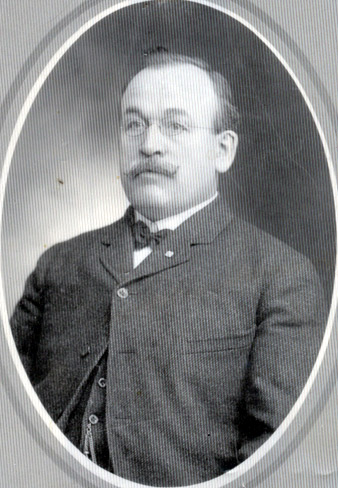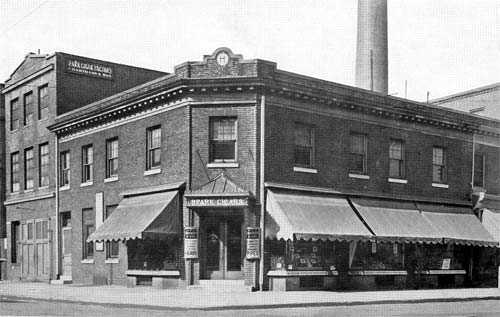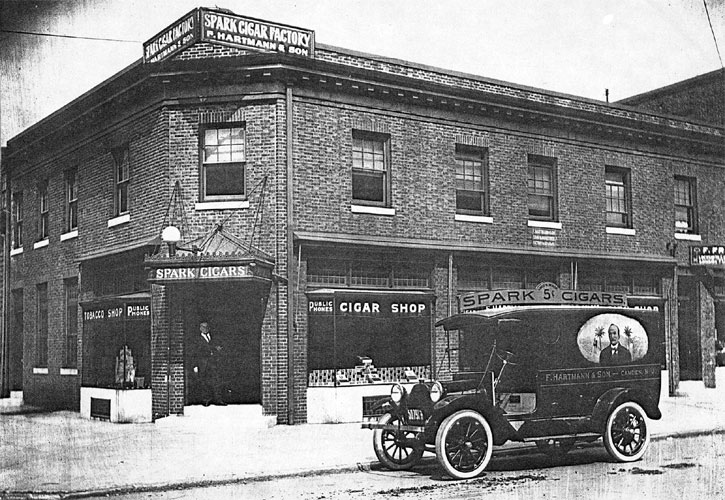| |
Oct 18
Song of Myself in Prose
This week’s reading of the rest of Speciman Days was to me, Song of Myself in prose. This last portion of Walt’s journals take place after his return from the war when his is back in the South Jersey/ Camden area. Immediately from the start of his entry entitled “New Themes Entered Upon” we realize that we have left the darkness of war and the battlefield behind. Instead Whitman has returned to his lazy days in the grass where we first met him in Song of Myself with odes to nature with early entries like “Entering A Long Farm-Lane”, “To The Spring and Brook”, “An Early Summer Reveille”, “Birds Migrating at Midnight” and “Bumblebees” (p 803-810).
With the post “A Sun Bath-Nakedness” Whitman begins to further develop his major theme of love of nature and speaks of nature’s beauty and greatness as it applies to his own health. As we know from the note on page 713 Whitman wrote this portion of his journals in ill health, after a stroke and here with entries like the sun bath entry Whitman speaks of nature’s wonder as the thing that has healed his spirit and keeps his outlook bright. He writes, “…to what do I attribute my already much restored health? That I have been almost two years, off and on, without drugs and medicines, and daily in the open air” (830). He continues the entry, describing the sun bathing process and finally attributes his nakedness largely to his rehabilitation (832). Then, in “The Oaks and I” he writes of the strength he gains from the oak trees, just as the sun restored him during his subbath the oak trees renew his strength during a morning walk. On page 832 he writes:
“shelter’d under a dense oak by the bank, where I have taken refuge from a sudden rain. I came down here…for the before-mention’d exercise I am fond of— to pull on that young hickory sappling out there…haply to get into my old sinews some of its elastic fibre and clear sap…I can soon feel the sap and sinew rising through me, like mercury to heat. I hold on boughs or slender trees caressingly there in the sun and shade, wrestle with their innocent stalwartness—and I know the virtue thereof passes into me”.
He continues, giving gratitude to all of Nature for its healing properties: “Thanks, invisible physician, for thy silent delicious medicine, thy day and night, thy waters and thy airs, the banks, the grass, the trees and e’en the weeds”(833).
Next, in entries such as “February Days”, where he mentions the songs of the robins and blue birds (838), Whitman is praising the healing aspects of Nature’s animals while entries such as “Horse Mint”, “Clover and Hay Perfume and even “Happiness and Raspberries” praise the power of scent on the human spirit.
With, the end of Whitman’s Specimen Days, he has given us a visceral, almost palpable report of the world around us and the healing properties they possess if we just approach them in the right state of mind. A trip to the Jersey shore can do wonders for our outlook, just by being in the sun and breathing in the ocean salts. I know this from experience. There are times when I just need to be at the ocean, somehow it lets you escape something that is bothering you and revives you somehow. Besides the shore Whitman visits Manhattan and loves that just as much (and any trip he takes on the ferry for that matter). Finally, Whitman also noticed that colors of things have an affect on our mental state and well-being(Straw Color’d and Other Psyches p. 852).
Thanks to Whitman for the reminder to return to nature occassionally to glean whatever it has to give me. And to always do my best to remain an optimist. Maybe we should all slow down a bit, stop worrying or being too busy and take some time to sun bathe naked or gain strength from oaks; after all it’s the healthy thing to do, Whitman says!
Tags: ww20
Oct 17
 Frank Hartmann Sr. 1890 Walt Whitman cigars were the brainchild of cigarmaker and businessman Frank J. Hartmann, Sr. Mr. Hartmann learned the cigar maker trade in the 1880’s from Cuban cigar maker Raphael Perez, whom Hartmann and his family lived with at the time. In 1887, Frank moved his family from the Perez’s Philadelphia home to what is now the Cramer Hill area of Camden. Shortly after his arrival in Camden, Hartmann met Abner Benjamin Sparks, Sr., fellow cigar maker and then owner of Spark Cigars. Spark Cigars was a small cigar manufacturing plant on third and Arch Street in Camden. Eventually, Hartmann bought Spark’s business expanding it into a larger building encompassing the entire corner of 3rd and Arch Streets. Below are some photos of Frank Hartmann and the Spark Factory (images courtesy of dvrbs.com a full link to the site is below).
 Sparks Factory Full View
 Spark Factory Close Up F. Hartmann in Doorway In approximately the 1890’s, Frank Hartmann developed Walt Whitman Cigars and while I was unable to find Hartmann’s personal reason for choosing Whitman as the “face” of his cigars, it seems that many cigar brands were using literary figures (even davey crockett) in order to entice the public to buy cigars. (you can find more info on cigar advertisting at the link below entitled cigaraficinado.com). And today the cigar labels and boxes are coveted collector’s items. According to the Libary of Congress exihibit, Revising Himself: Walt Whitman and Leaves of Grass, although Walt never believed he had reached the public he definitely had. His name was used to sell everything from cigars and coffee to insurance. and his name and image have become an integeral part of popular culture. Under their heading “Popularizing Whitman” the LOC writes:
Whitman feared he had not reached the common people, but his name has been used to sell cigars, coffee, whiskey, and insurance. His poetry was distributed to workers during the Depression and to soldiers during World War II. In 1957 the Walt Whitman Bridge opened between Philadelphia and Gloucester City, New Jersey. His words are inscribed in such public places as Reagan National Airport in Washington, D.C. and Fulton Ferry Landing in lower Manhattan. His image has been in cartoons and on matchbooks, postcards, and stamps. His life has inspired televison episodes and motion pictures. Hotels, buildings, plazas, camps, parks, truck stops, corporate centers, schools, AIDS clinics, think tanks, and shopping malls now bear his name (http://www.loc.gov/exhibits/treasures/whitman-legend.html).
While Frank Hartmann was running Spark Cigars he was extremely active in worker’s unions. In fact, his shop was the first to use an all-union labor. Perhaps that’s one reason he chose Whitman to be his icon. Who better to represent unionized worker’s than a poet who is all about humanity and equality?
Hartmann’s use of Whitman as the face of cigars was not a one way deal. By using Whitman, Hartmann not only sold cigars, but helped to promote Leaves of Grass as well. In 1898 Hartmann created a label for his cigar box entitled “Walt Whitman Cigars: Blades O’ Grass”. This would entice the public to not only buy the cigars, but to read Leaves as well.
 Blades O Grass 1898 (image courtesy of LOC and Dr. Scanlon) full link to loc exhibit below.
Then in 19o1 lithographers Kaufmann and Strauss created a sign that also became a box label. And this time the ad contained a slogan “Whitman Cigars: A Poetic Comfort” The Kaufmann and Strauss label and lithograph sign mark the first official ad for Walt Whitman Cigars and the importance during the early 20th century of lithographers in advertising. According to the website Cigar Afficiando’s article “Sign of the Times”:
In a self-perpetuating and evolving cycle, these signs became effective in expanding the cigar industry and captured the work of respected artists. By spreading awareness and appeal, they sold more cigars, spurring the release of new brands, which resulted in the commissioning of more signs. This also led to greater competition among brands in the tobacconist’s displays and an even greater need for dynamic, eye-grabbing ads (Cigar Aficiando link provided below) The Whitman Ad is currently valued at $10,000 (Cigar Aficianado)
Below is a picture of a reproduction of a 1910 ad that was similar to the original 1901 image and also ran with the poetic comfort slogan.Whitman Cigars: A Poetic Comfort
 Whitman Cigars: A Poetic Comfort The previous label from 1898 contained the name of the product, “Blades O’ Grass”, but here we see an evolution in advertising, not only because the company used professional lithographers, but because they wrote a slogan that is not product centric, but taps into the personality of Whitman himself. Here Hartmann and Son is truly selling an image. They are tapping into the concept of Whitman as the lazy, comfortable poet. A man of men who might sit down and enjoy the occassional cigar. And therefore the public sees cigars as a way to relax, as a way to live the life of a poet for a couple of minutes.
Finally, in other news, the above image has become an emblem of popular culture. While Googling I discovered Whitman’s image emblazoned on t-shirts sold on a punk clothing website (they are actually sold on a few different sites). I have provided the link below for your viewing pleasure. The idea of Poetic Comfort has gone punk. Here’s a picture to entice your buying power.
 - Whitman goes Punk
The shirt is available in 9 different colors, but i liked the red best! the full link to the site is below. Enjoy! And here’s to Whitman’s work remaining a part of our culture and Whitman himself remaining an icon.
Links Cited
http://cgi.ebay.com/1910–Walt-Whitman-Brand-Cigar-Outer-Box-Label-Print_W0QQitemZ320430040819QQcmdZViewItemQQimsxZ20090930?IMSfp=TL090930156004r4254
http://www.cigaraficionado.com/Cigar/CA_Archives/CA_Show_Article/0,2322,1910,00.html
http://www.dvrbs.com/people/camdenpeople-FrankJHartmannSr.htm
http://www.loc.gov/exhibits/treasures/whitman-legend.html
http://www.printfection.com/shop/punk/image.8161091
http://www.whitmanarchive.org/criticism/current/anc.00163.html
Tags: digitalmuseum, whitman cigars, ww20
Oct 13
A True Account of War
The section of Whitman’s specimen days that we read for today provided us with a direct first hand account of war. Whitman told us of the lives of the soldiers, of his work as a nurse in the hospitals and on the field. He even provided us with a glimpse of the socio- politcal climate during wartime all while preserving the humanity of the experince, as always. Whitman titles this collection Specimen Days and at first glance a reader might think the title serves as a remembrance of the lost soliders (as in their bodies as specimens), which is a perfectly accurate reading of the title, but I think Whitman views the journal entries themselves as specimens. Every moment of the war that he saw fit to record was one that he saw as meaningful enough to take the time to analyze and think about in order to record his thoughts on the matter; just as a scientists analyzes various materials in a lab, Whitman analyzed the moments of battle and compiled his findings, his moments of humanity in Specimen Days.
In the entry titled “Contemptous Feeling” (731) Whitman mentions a conversation with the mayor of Brooklyn in which the mayor said he “hoped the Southern fire-eaters would commit some overt act of resistance . . . but he was afraid they would never have the pluck to really do anything” (Whitman 731). Well, by recording his account of the war Whitman did do something he made sure there was a record of his history and his feelings about it. Today, I believe that most of our generation are politically apathetic, at least more so than previous generations, but Whitman reminds us here of the importance of our country and being active in the political process. It was during Whitman’s time that our country as it stands was formed.
But, as with all of Whitman’s writings, for me it is the human element that stands out the most. yes, there are accounts of battles, but the passages I found most notable were: “Unamed Remains the Bravest Soldier” (Whitman 748), “Home-made music” (755)”Death of a Hero” (768), “Deserters” (771), “Burial of a Lady Nurse”(778) and “Convulsivness” (799). I chose these works because they sort of encapsulate the emotional response to war. Whitman recognizes and honors the unknown casualties in unamed remains. The death of a young, but truly fearless soldier who mourns those he’s killed is dealt with in Death of a hero, while Deserters deals with the men that thought the could handle the fight, but found they were unable to, which reminds us how much the men who actually did fight were heros. In “Home-made music”, we are reminded of the things we do for comfort and relief. Everyone coming together and singing allows them to forget for a moment that they are at war. Burial of a Lady Nurse (and the following entry “Female Nurses for Soldiers”) expresses not only how important nurses were in the military, but the fact that Whitman is giving them attention in his account shows their importance in general is growing just a bit, it seems. War is definitely a masculine arena, so I felt it important to acknowledge that women were even recognized at all, even if it is just for the caring and nurturing touch as Whitman puts it. And finally, “Convulsiveness” is the single word that Whitman chose to sum up his account and it represents so many things here and is such an accurate choice. Society as a whole is shaken when we are part of a war, the energy on the battlefield I’d imagine can definitely be described as convulsive, but it’s also a word I might use when describing a grieving mother, or family or even fellow solider. So, in one word, Whitman was able to capture the energy of war itself and even the feelings of both society and the individual.
Oct 06
Reconciliation
Among the many poems we read for this week’s reading, Whitman’s “Reconciliation” stood out to me beyond all the others. It wasn’t a straightforward statement of patriotism or a simple recount of a battle. “Reconciliation” humanizes the exprience of war. In the poem, Whitman crosses battle lines and mourns an opponent while at the same time appreciating the fact that the war has ended. He writes: “Beautiful that war and all its deeds of carnage must in time be utterly lost” (Whitman p 453 line 2). He continues and seems almost glad that death has come; he sees it as a cleansing experience (line 3). But, it is the humanization of the speaker’s enemy that is most striking. “For my enemy is dead, a man as divine as myself is dead”, he says at line 4. Even in wartime Whitman’s love of equality is not stifled. The speaker sees his enemy as equal to him and even mourns his death and seems to wish him peace as he bends down and kisses him in his coffin (line 6).
This poem made me wonder about war today. Do you think today’s soldiers see their opponent’s as equals and mourn their death? In a perfect world I would like to believe that at least occassionally soldiers take the time to mourn for those they’ve had to kill, in addition to those lost in their own units, but I just don’t know. Today our military is a strictly trained force; they are trained soley for the purpose of defeating the enemy, and in order to accomplish that task the military removes the human aspect from war. Not only do they deindividualized the men themselves by shaving their heads and having them all wear uniforms and go through the exact same training process in order for them to assume their role as soldier (yes i know the head shaving and training is also considered a bonding experience for the units.), but they also dehumanize the opponent by refering to them as “targets”.
However, during Whitman’s time the military wasn’t as fully formed as it is now. The men fighting were just that: men. They didn’t have formal training, so to speak and both sides were doing their best to fight for their country. The speaker may have even known his opponent. But, regardless whether he knew him or not he still took the time to recognize that he caused his death and to mourn him, despite the fact that they were defending opposite sides. This poem should reminds us that you can stand up for and defend your beliefs and even, literally, fight for them while still recognizing your opponent’s point of view. As he has done with all his work thus far, Whitman has reminded us of our human-ness and celebrated it. He recognizes our human spirit and capacity for love and equality even in wartime.
Tags: ww20
|
|






Recent Comments